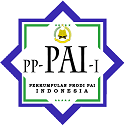PENERAPAN METODE PEER GROUP TEACHING DALAM PROSES PEMBELAJARAN PENDIDIKAN AGAMA ISLAM (PAI) UNTUK MENINGKATKAN HASIL BELAJAR SISWA
Abstract
The purpose of this study were: (1) to determine the application of the Peer Group Teaching method in PAI Subjects in Class VIII 2 of Kuantan Hilir 1 Junior High School, (2) to find out the application of the Peer Group Teaching method to improve results student learning in PAI learning in class VIII 2 of Kuantan Hilir 1 Junior High School.
This study uses a Classroom Action Research (CAR) design of 3 cycles, namely pre-cycle, Cycle I and Cycle II. Each cycle consists of one meeting and four stages, namely: (1) action planning stage; (2) the stage of implementation of the action; (3) observation stage; (4) Analysis and reflection stages. The target of this study was class VIII 2 of Kuantan Hilir 1 Junior High School. Meanwhile, the data obtained in the form of the results of competency test and observation of group learning activities.
From the results of research data analysis, PAI learning with the use of the Peer Group Teaching method (peer tutoring) can improve student learning outcomes. This is evident from 30 students, 26 students (87%) have reached the specified KKM, 77, although there are 4 (13%) students who have not achieved individual completeness. But this has exceeded the set of success indicators as many as 80% of students reach KKM (Completed).
However, it seems that further efforts are still needed in empowering student learning outcomes in the school. The teacher is expected to deliver material not only with oral and monotonous information but also by using various learning methods. In addition, it is expected that this learning model can be used as one of the PAI learning alternatives because with this method students become more active in thinking and doing during teaching and learning activities.
Keywords: Peer Group Teaching Method; Learning Outcomes; Islamic Education
Full Text:
36 - 45DOI: https://doi.org/10.18860/jpai.v5i1.5861
Refbacks
- There are currently no refbacks.
Copyright (c) 2018 J-PAI: Jurnal Pendidikan Agama Islam

This work is licensed under a Creative Commons Attribution-ShareAlike 4.0 International License.
...............................................................................................................................................................
Editorial Office:
Fakultas Ilmu Tarbiyah dan Keguruan
Universitas Islam Negeri Maulana Malik Ibrahim Malang
Jalan Gajayana 50 Malang, Jawa Timur, Indonesia 65144
Phone (0341) 552398, Faximile (0341) 552398
E-mail: jpai@uin-malang.ac.id
...............................................................................................................................................................

J-PAI: Jurnal Pendidikan Agama Islam is licensed under a CC BY-SA 4.0.
...............................................................................................................................................................
Indexed by:

















